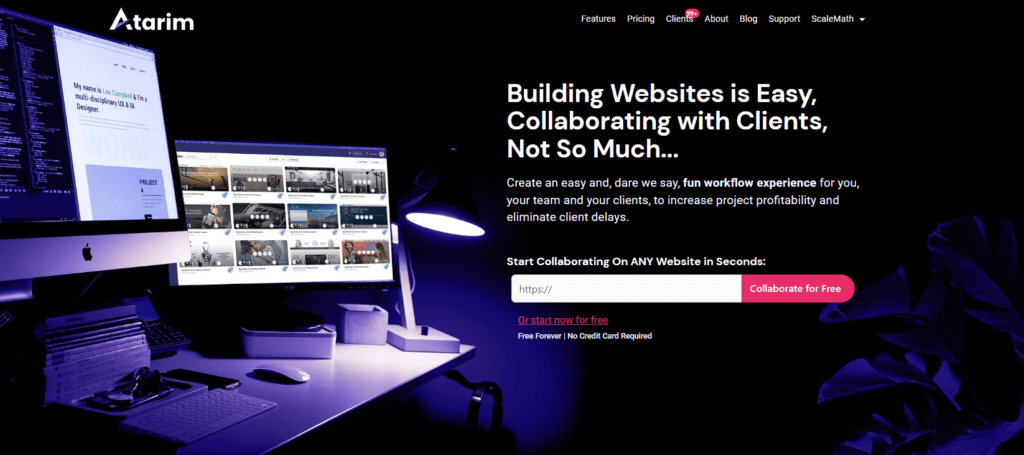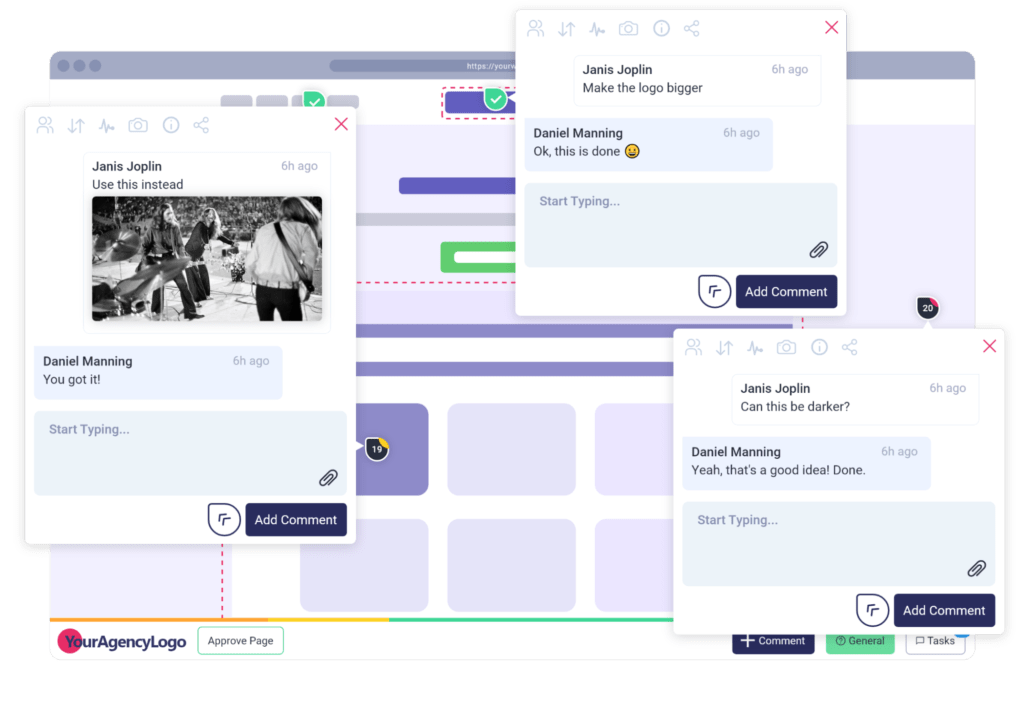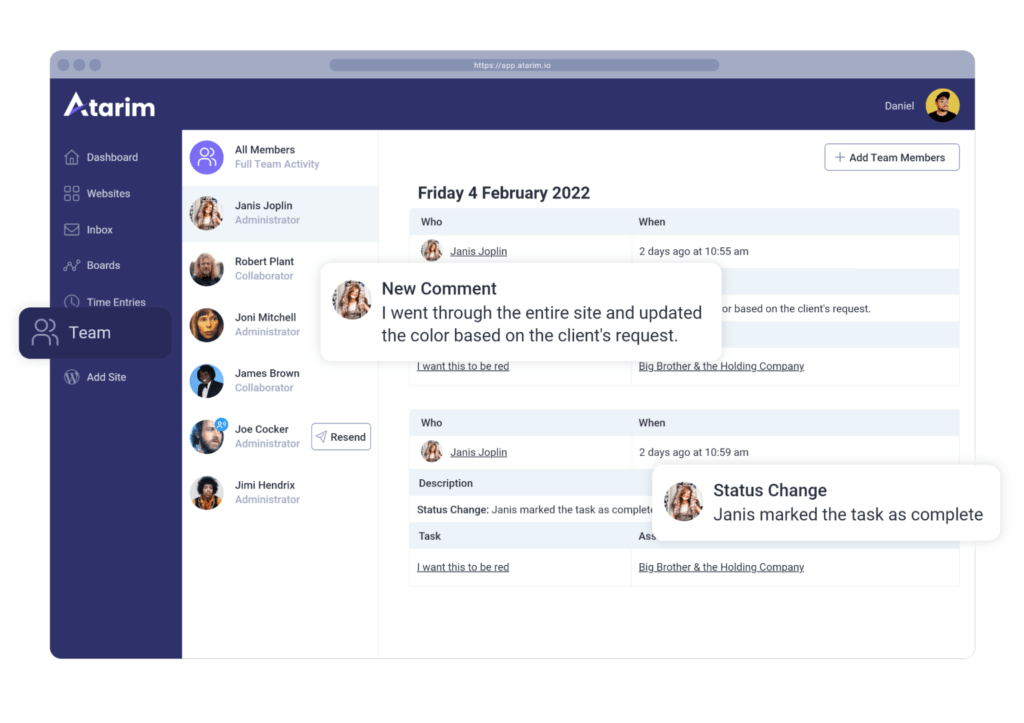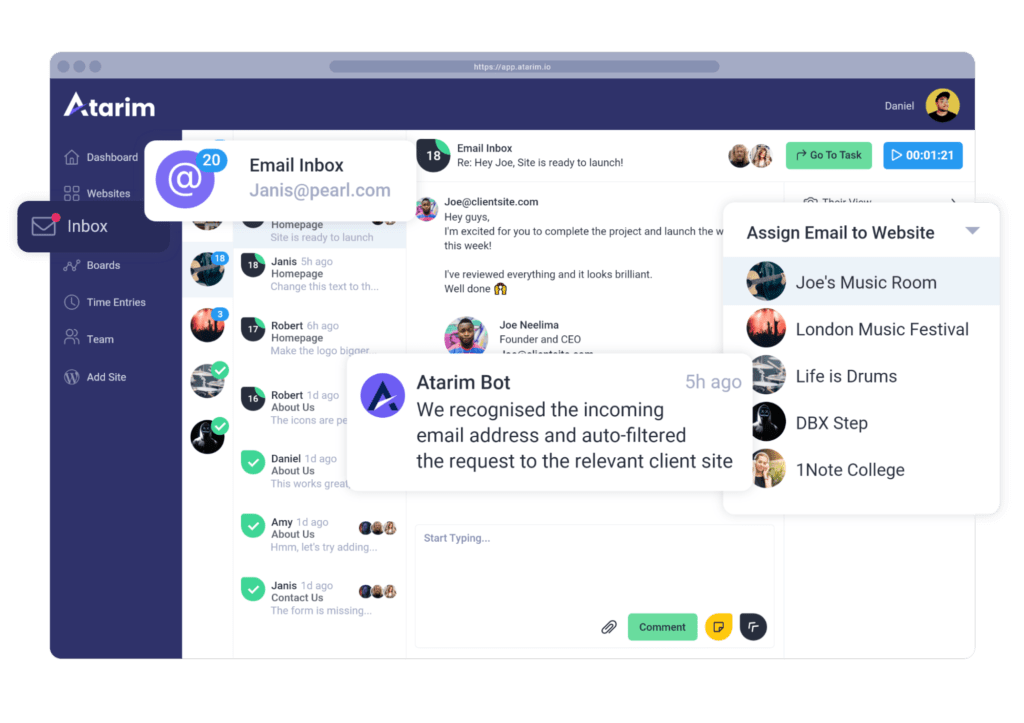Working well with a web design and development partner is a two-way street. Becoming the ideal client to work with is the best way to enjoy working with each other and getting the best possible output and results you’ll be pleased with.
Now, it’s true that there are hundreds of web dev freelance horror stories out there—from ghosting developers to missing deadlines entirely. In this article, we’ll be diving into the 10 best ways you can work well with your web design agency. Learn how to get the most out of your engagement with your web design and development partner so you can do and get the best work possible.
Before we start: this article is aimed at clients. We’ll be talking about the traits and behaviors agencies love to find in clients so that company owners like yourself can also be a pleasure to collaborate with.
Web design and development is a collaborative process that requires the cooperation of both developers and clients to be successful.
1. Collaboration > Outsourcing (Long-Term Partnerships)
Just like having a mechanic, electrician, or plumber—web development is a long-term game that requires maintenance. Even when your website is done and ready for launch, you shouldn’t be so quick to cut off your developers from your workflow forever. You may need them for upgrades, maintenance, or minor changes throughout your website.
Knowing this, you must treat your development team as a long-term investment. You aren’t just paying an agency for a one-time product. You’re investing in a relationship. This change in mindset is essential, primarily when proceeding to the following tips.
A long-term relationship with an agency can also result in lower costs and other benefits. Finally, one key reason why fostering your relationship with your developers is essential is that your web design agency knows your website from the ground up.
When you need future updates or bugs that need fixing, they’ll be able to come in, remember the code, layout, and functionalities, and then select the problem. Contrast this to hiring a new agency, and you’ll have to deal with project onboarding, giving them time to read and understand code they didn’t write, and even risk the possibility of messing up your website’s coding conventions.
2. Make Your Brand Clear
Web development and design are high-paying career choices with a work culture that highly appreciates and takes care of its employees. Keeping that in mind, most web design agencies are enthusiastic and happy to work. They’re paid a lot, sometimes work at home, and are probably pursuing their passions.
Utilizing this energy is an excellent method to make your web design team passionate about your project, and the best way to do that is by inspiring them with your brand. Remember, if you can barely communicate what your brand is all about, like why it’s unique or different, your design agency will have a more challenging time translating that into a terrific webpage.
If you can communicate your brand effectively and make your team just as inspired as you, you’ll create a snowball of momentum that will help kickstart your website’s progress.
Try using the what, how, and why method. Most employees know what their company is making, and several might understand how it works, but only a few know why their company exists. If you can clearly define why your brand deserves to be on the internet, then your development team can make decisions that benefit that vision.
3. A Website Company Is Better Than a Freelancer
WordPress has quickly become an easy and popular way to start websites on a budget. But if your website is serving a business and has the potential to pay dividends for years to come, it tends to be a good rule of thumb never to cut costs in those areas.
Hiring an agency with experience building websites for businesses like yours, as opposed to freelancers, makes the process much easier and less reliant on you coordinating everything that needs to happen while continuing to run your business.
4. Centralize Your System for Feedback and Updates
A centralized workspace is a must-have for tracking progress, introducing new tasks, and ensuring everything is on schedule. Atarim is an excellent solution for this.

Unlike other online workspaces, Atarim is designed for managing and delivering website projects. The app has dozens of unique WordPress and on-site-related features that are absolute time savers.
Users and clients also get a considerable boost when communicating changes since Atarim allows clients like yourself to comment directly on mock-up designs and send on-site feedback.

Everything in between your project should start and end in a workspace. Whether it’s the first few tasks for your developers or a dedicated column on the invoices you’ve been sending and paying your team, having everything on one site is an invaluable asset.

Not only does this make your life easier, but it also makes a world of difference for your developers and designers. They can easily do it from one site whenever they need to look at your instructions, make changes, or send you updates.

Say goodbye to scrolling through emails and messages in multiple workspace environments.
5. Be Punctual
Deadlines work both ways. If your design team has a question for you or needs your input, be punctual when replying to them.
Think of it this way. The design agency you’re working with is stuck and needs your decision to continue. They send messages asking for your advice and wait for your reply before they continue working. The longer you take to reply, the more out of the zone the designers will eventually be.
While that might sound simple, creatives need to work unhindered as much as possible. Most design teams have what’s called “focus modes,” which is a state wherein the designer loses track of time and everything else other than the tasks they have to do.
It’s like when you’re focusing on a game or a passion project, so much so that you lose track of time and other things around you.
Being punctual also means two things: that you’re respecting the time of your web design agency and that you’re excited to help out whenever you can.
Clients like this radiate inspiration for their own projects and become a confidence booster, knowing that the client is both ready to help and excited about the website’s progress.
6. Make Everything Official
Although the website project is for your company, it may also be helpful in the web design agency’s portfolio. Drafting a clear and official contract before you start might take a day or two of laborious, detailed work. However, it’s worth all the headaches it will save you in the future when you’re unsure about rights, budget calculations, payment terms, and so on.
This is also why working with a web design agency is a lifesaver since they’ll be in charge of drafting a contract for you. All you’ll have to do is read, confirm, and maybe ask for revisions if there are errors in the draft.
Here’s a simple outline of things to look out for when drafting a contract:
- Project objectives
- Clearly-defined deliverables (what? when?)
- Budget calculations
- Terms of payment
- Right of ownership to content
- Cancellation agreement
It’s always a great idea to be upfront about what you’re paying for, what you’re getting, and how you expect the entire process to go. Clearly defining what each milestone means is not just for your benefit but also the ease of mind of your development team.
7. Be Patient Yet Firm
It’s almost impossible not to have any revisions or changes when developing a website or another design project. It’s inevitable for you to either second guess your original ideas or to find new concepts that would provide more value to your website.
There’s nothing wrong with changing your mind and asking your design agency for changes, but you have to be reasonable and patient when setting deadlines.
If you ask for any revisions, be ready to extend the deadline if necessary. Don’t be that client who changes his mind and wants something different yet expects everything to be delivered on the same, original schedule.
Clients like those are a nightmare to work with, especially when they have no idea how difficult their changes can be.
On the contrary, you should also be firm once deadlines are agreed to. Follow up on the progress of deliverables two days or weeks before they’re due so that you can remind the design agency that you’re both excited about the results and that you’re waiting for them to finish.
As we mentioned above, it’s essential to show that you care about the project, and keeping a note of deadlines is a great way to do that.
8. Ask and Encourage Questions
Everyone, including yourself, is going to thank you for asking as many questions as you needed to. Although competent web design agencies will vet you through a precise process, helping them understand what you want in your website will never be perfect.
As a general rule of thumb, clarifying legal terms and creative decisions is always a good idea before starting out on anything. Explaining everything with your design agency, even the smallest details, will save you time, money, and possible conflicts.
Asking questions also shows that you care about the work and the designers behind your website. Simply asking your design agency for suggestions or opinions will make them understand that you’re open to criticism.
Considering that design agencies have worked on hundreds of websites, it’s not a bad idea to implore all that experience into your website. This eighth tip falls in line with the next, so keep reading.
9. Keep a Record of Any Major Changes or Clarifications
Taking a screenshot of your conversation for proof isn’t always bad. Generally, whenever you have any critical changes or clarifications, it’s a good idea to screenshot that conversation and keep a record of it somewhere.
A great place to store this would be in a workspace like Atarim, where you can easily track and list out changes. It’s essential to make these records readily available for your development team so that they can refer to them in case they need to review the changes.
Another use for this would be a record of frequently asked questions (FAQs). Doing this will show that you’re at least trying to organize and make the lives of your design agency easier, a kind gesture that doesn’t go unrewarded in this field of work.
Most importantly, keeping a record like this will help you avoid saying, “I thought you said,” or, “I don’t remember you saying this.”
10. Select an Agency That Will Support You After Launch
Finally, for the last tip, we go back to the beginning. Before you start, ensure that you find an agency that will set you up for long-term success.
Competent web design agencies will offer you long-term maintenance and free support even after you’ve worked with them. As long as working with you was a positive experience, you can best believe that some agencies will go above and beyond for clients like yourself.
WebDevStudios is a stickler for taking care of clients, even after launching their website. Whether it’s bug-fixing, plug-in updates, or optimizing your website’s performance, you can benefit from many post-launch features with the right agency.
You won’t have to sit there Googling for help by yourself and scrolling through StackOverflow answers from eight years ago.
Frequently Asked Questions
What does a web design agency do?
Web design agency provides clients with web design services such as brand design development, color schemes, creation of visuals for marketing and content purposes, UX/UI, and other design-related aspects.
In general, web design agencies can help you improve user experience and help you define your brand identity in your industry.
What’s the difference between a web design agency and a freelancer?
A web design agency is a service that involves a complete package, more than just launching a website. On the other hand, a freelancer is somewhat limited in their abilities to provide a consistent level of ongoing support that is more indicative of what you’d expect from an agency with multiple full-time team members that specialize in various areas of developing, designing, and maintaining websites.
How many hours does it take to make a website?
Building a website on your own can take anywhere between a few hours to a few days to make a website, depending on your skill set and the tools you’re using.
However, if you are hiring a web design agency, it can take days, months, or maybe even a year to make a completely customized website. The entire process boils down to the design between you and your development team, and executing that to perfection can take quite a while. Atarim also has a detailed post about how long projects can take, addressing some of the most common bottlenecks.
Conclusion
Getting a website up and running isn’t just about finding the right agency, paying them to do it, and then forgetting about it until it’s ready for launch. A website is a creative, collaborative process that goes down a two-way street. Your development team will need your input, ideas, and vision to help make your website as accurate as you envision it.
Becoming the ideal client is essential, especially when working on a creative project. Clients who are enjoyable to work with help motivate the development team working with them, eventually producing a better final product.
About the Author
 Vito Peleg is the Founder and CEO of Atarim, the most advanced website collaboration system on the planet. Vito built his first website at 14 years old on GeoCities and then started building websites for clients as a freelancer while touring the world as the leader of a rock band. This eventually grew into an agency with a team of 12 based in London before creating Atarim to redefine the way agencies work.
Vito Peleg is the Founder and CEO of Atarim, the most advanced website collaboration system on the planet. Vito built his first website at 14 years old on GeoCities and then started building websites for clients as a freelancer while touring the world as the leader of a rock band. This eventually grew into an agency with a team of 12 based in London before creating Atarim to redefine the way agencies work.
Comments